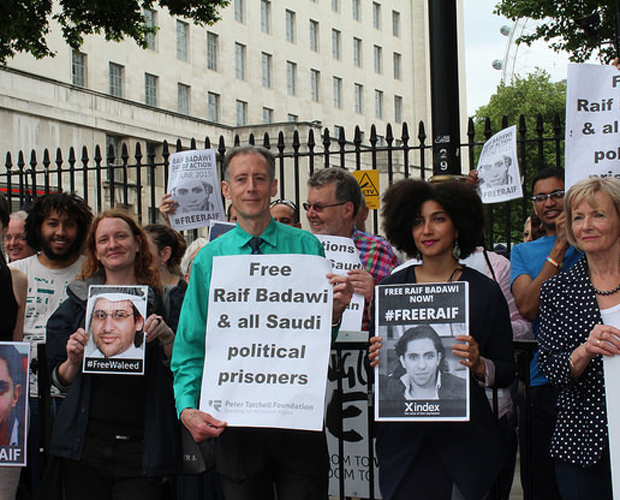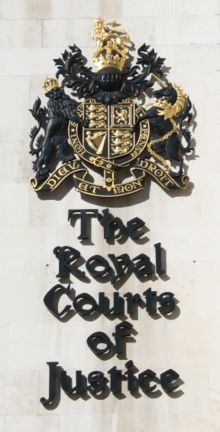Index relies entirely on the support of donors and readers to do its work.
Help us keep amplifying censored voices today.

Along with Melody Patry, delegates delivering the open letter included political campaigner Peter Tatchell
On 17 June 2015, delegates including Melody Patry from Index on Censorship delivered an open letter to UK Prime Minister David Cameron asking for his help in pressuring the Saudi government to release blogger Raif Badawi. Badawi is currently serving a 10-year prison sentence and facing 1,000 lashes for insulting Islam through electronic channels. His sentence was imposed because he expressed an opinion. The date marked the third anniversary of his arrest.
This article was posted on 22 June 2015 at indexoncensorship.org
 Arms trade campaigners are celebrating today, after a London judge decided that the director of the Serious Fraud Office should not have dropped an investigation into a multi-billion dollar arms deal. Padraig Reidy reports
Arms trade campaigners are celebrating today, after a London judge decided that the director of the Serious Fraud Office should not have dropped an investigation into a multi-billion dollar arms deal. Padraig Reidy reports
A court ruled today that the British government was wrong to intervene in a Serious Fraud Office investigation into dealings between BAE and the Saudi government.
The government had ordered the investigation to be halted, claiming it presented a threat to national security. It was alleged that the Saudi government had said it would no longer co-operate in intelligence and security if the investigation went any further.
In a ruling issued this morning, Lord Justice Moses said: ‘It is obvious, in the present case, that the decision to halt the investigation suited the objectives of the executive. Stopping the investigation avoided uncomfortable consequences, both commercial and diplomatic. Whilst we have accepted the evidence as to the grounds of the decision, in future cases, absent a principle of necessity, it would be all too tempting to use a threat as a ground for convenient conclusion: we fear for the reputation of the administration of justice if it can be perverted by a threat.’
He continued: ‘Our courts and lawyers have the luxury and privilege of common law and statutory protection against power which threatens the rule of law. All the more important, then, that they provide support and encouragement to those in a less happy position. How do they do so, if they endorse surrender, when in Uganda the courts are forced to resist when those whom they have released on bail are re-arrested on the court-room steps by armed agents of the executive, or when the Chief Justices of Fiji and Pakistan are deposed by military rulers?’
Symon Hill of Campaign Against the Arms Trade, which brought the case along with Corner House, said that the judgment upheld the principle ‘that might is not right, and the law should operate without fear, favour or prejudice’.
Susan Hawley of Corner House commented that ‘the ruling has strengthened our securities and freedoms’.
The judgment means the director of the Serious Fraud Office must now decide whether to appeal the decision, and whether to re-open the investigation.